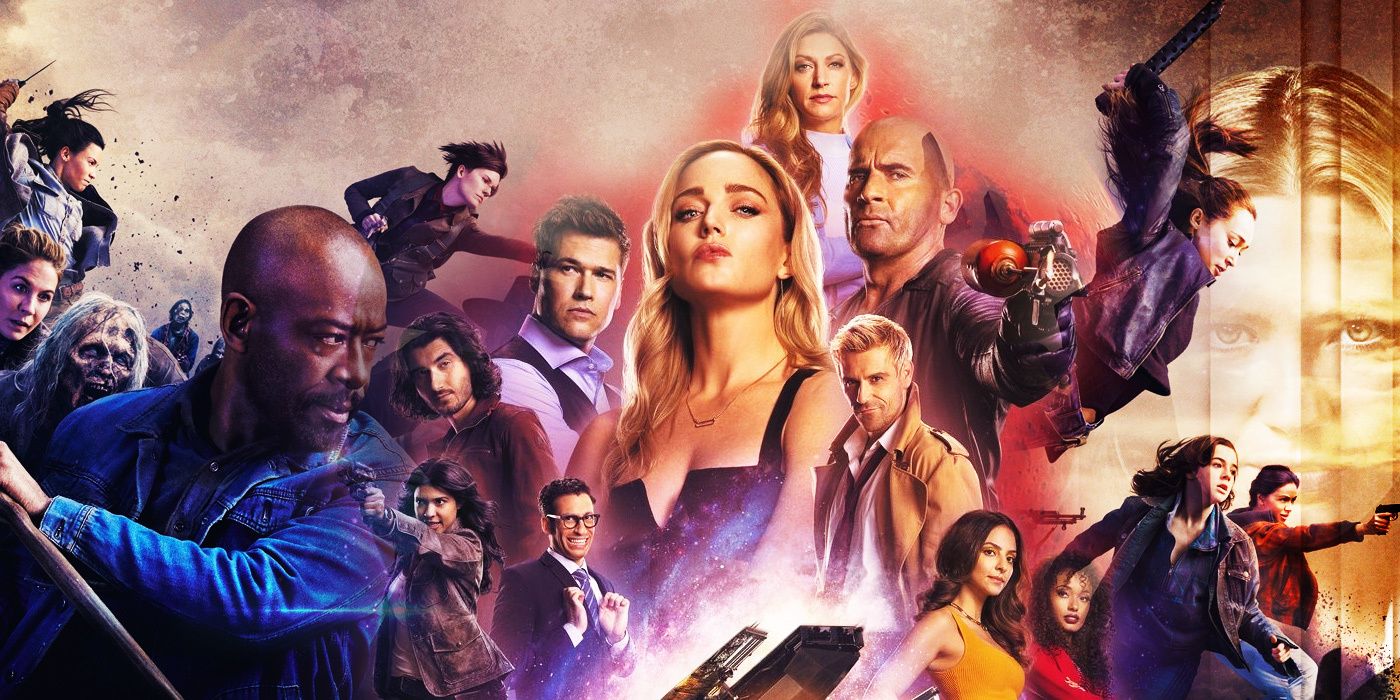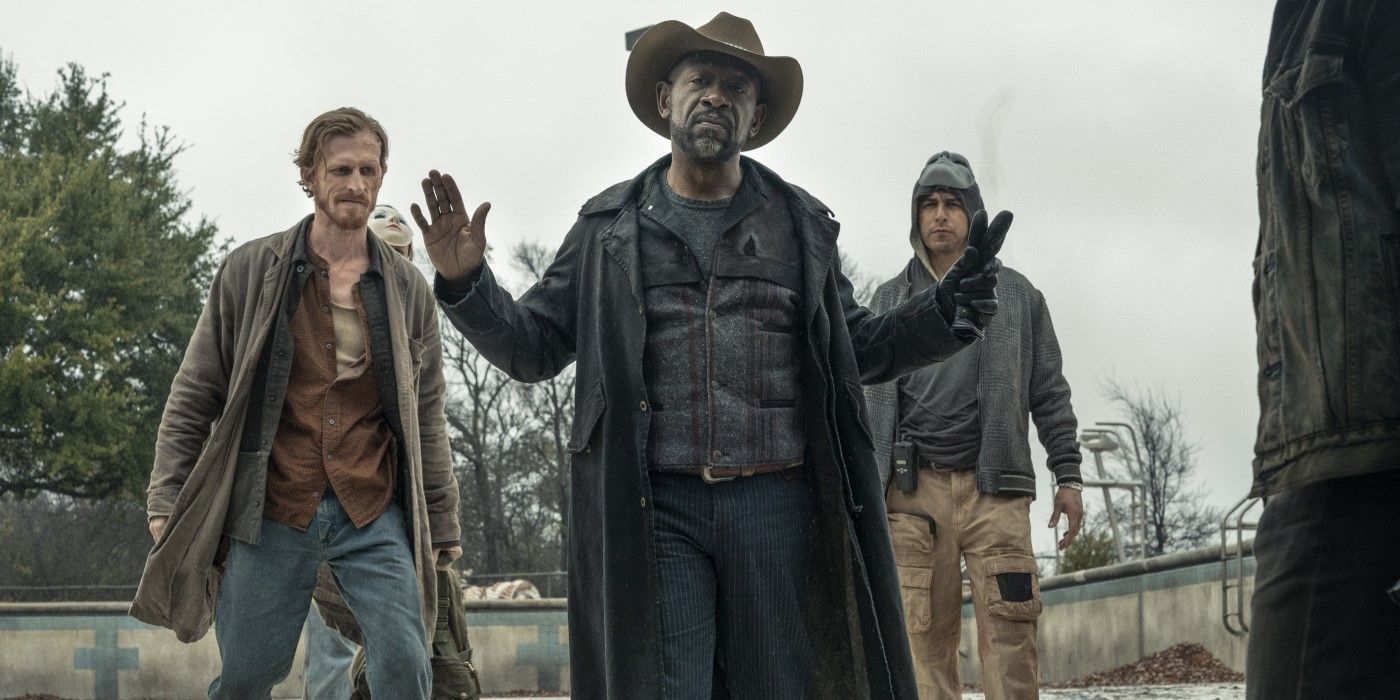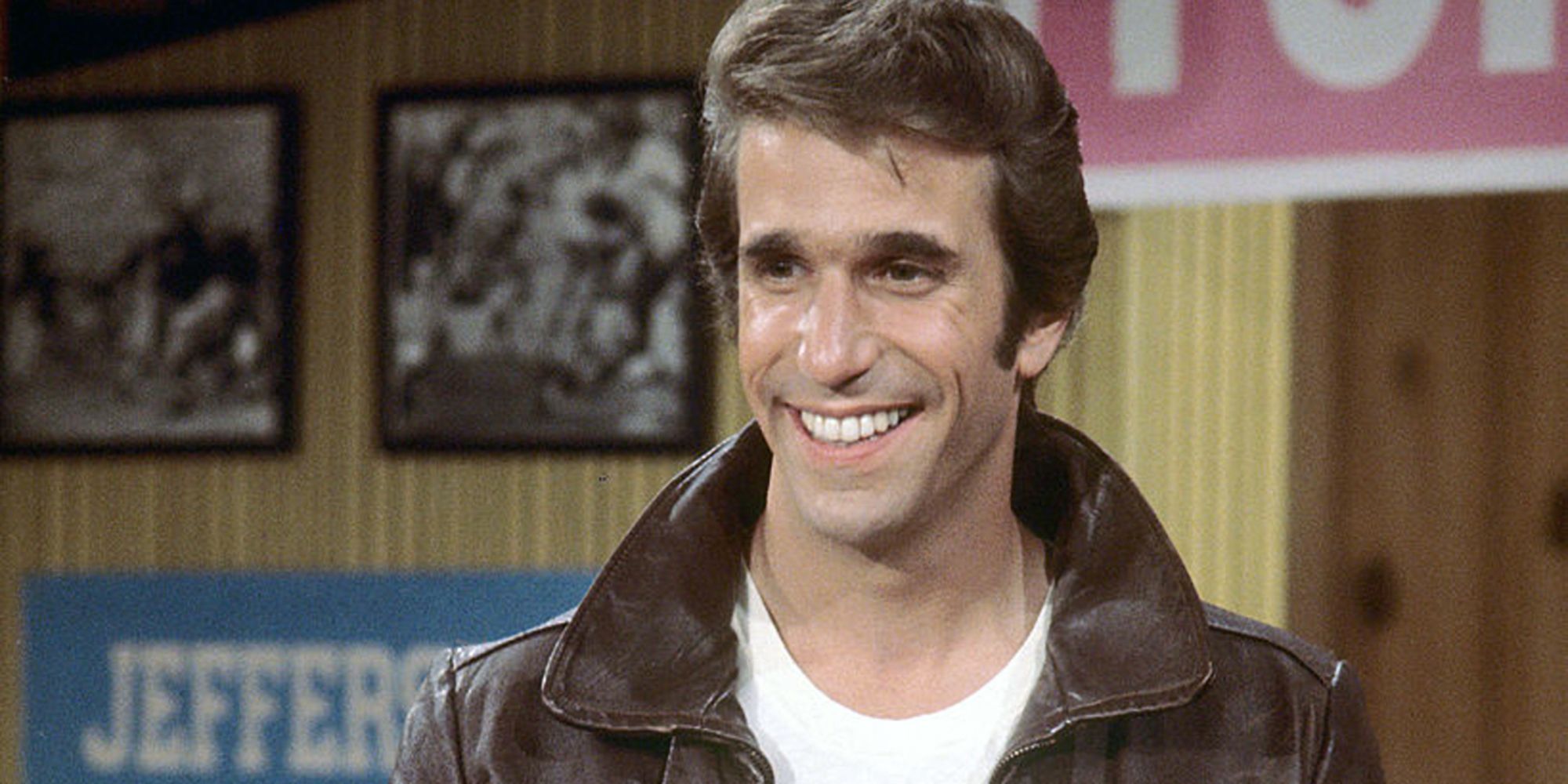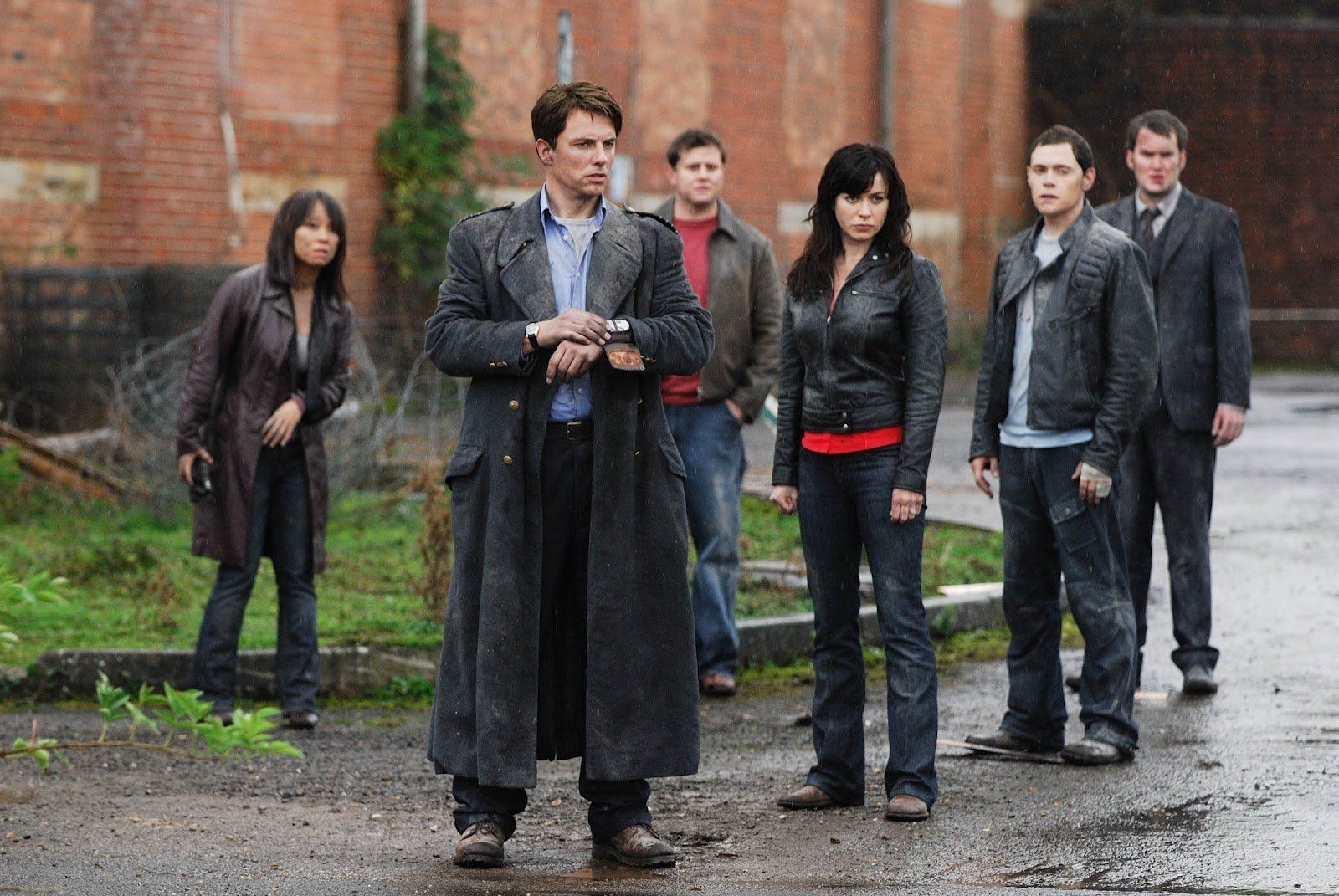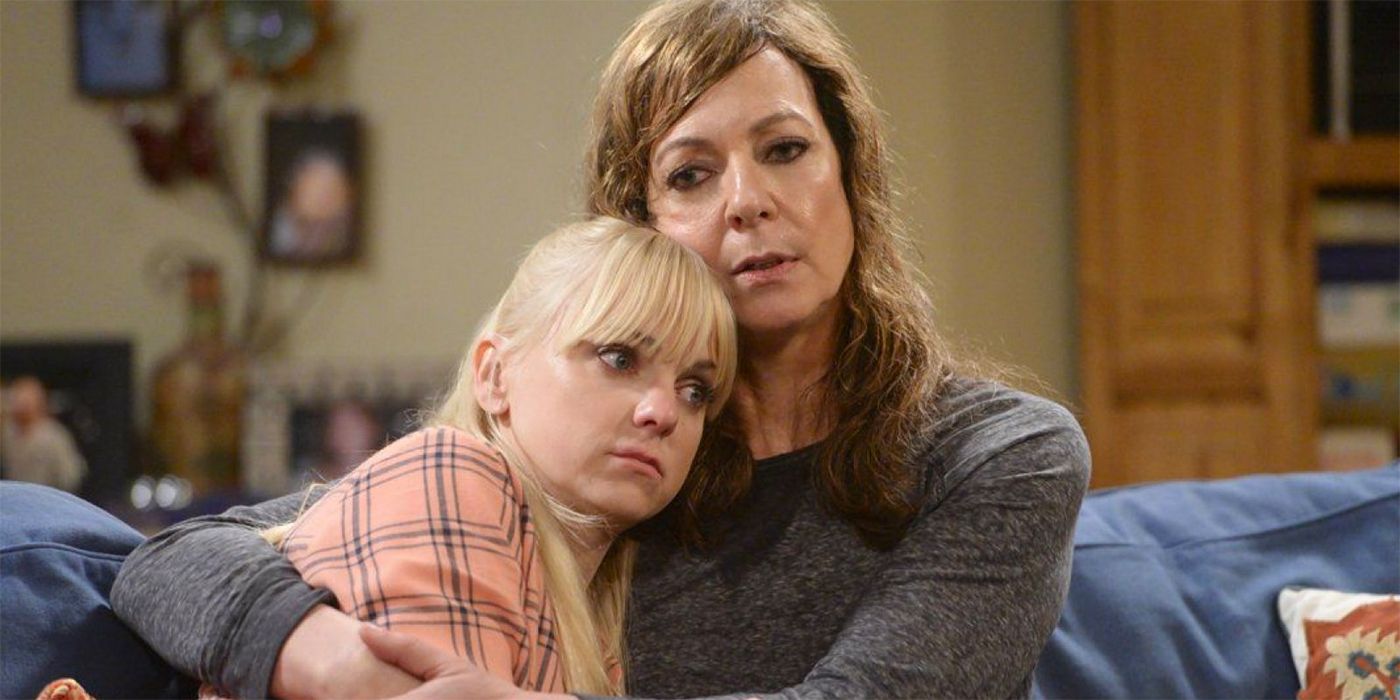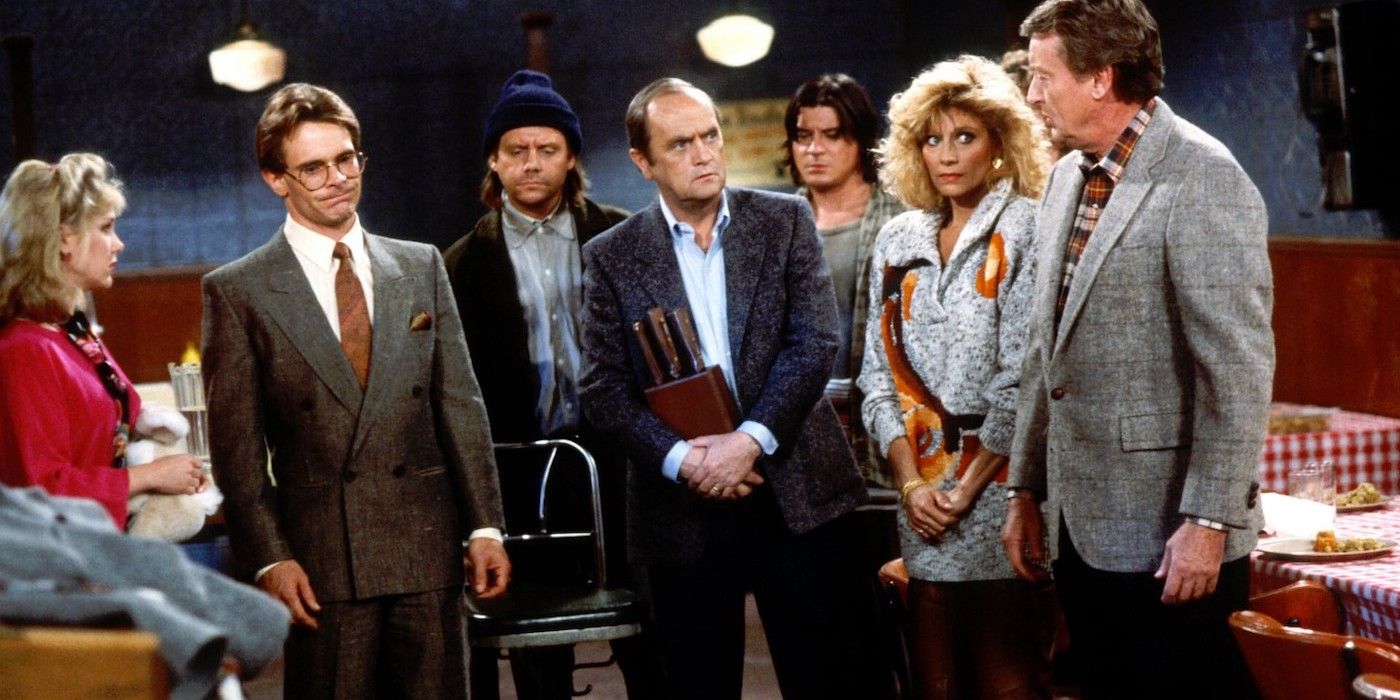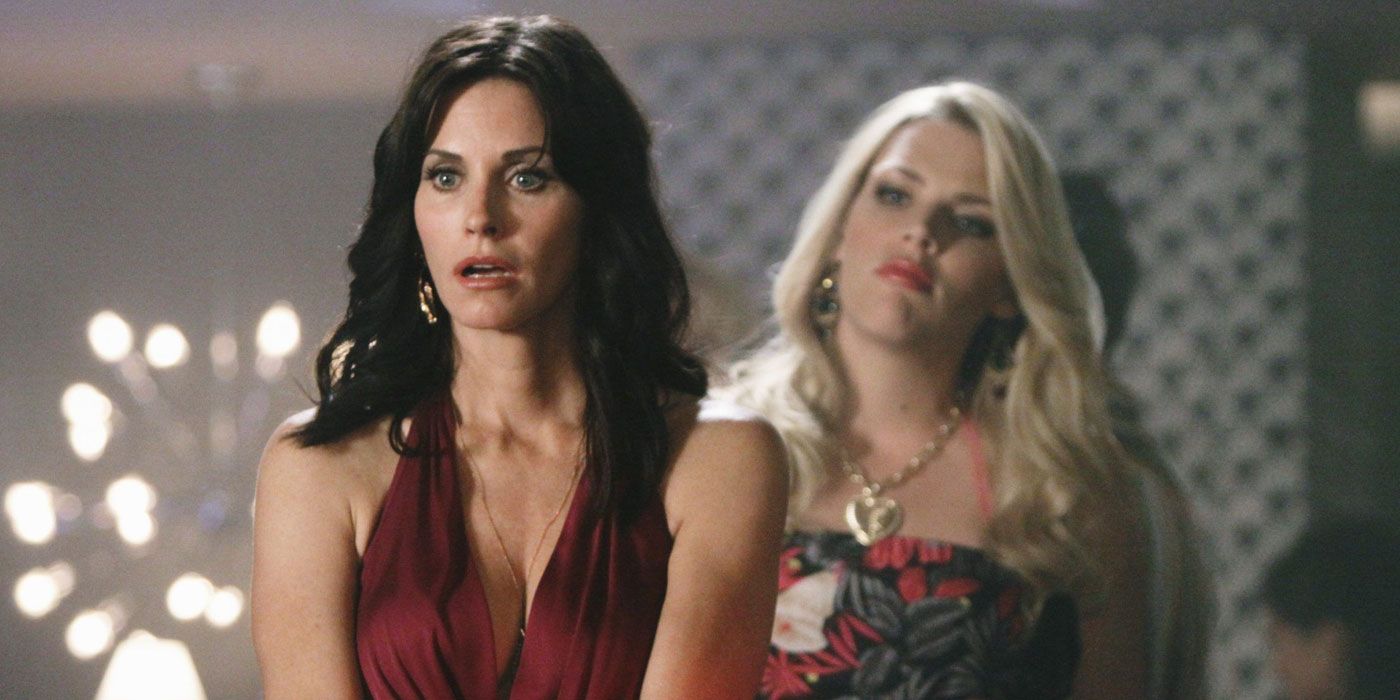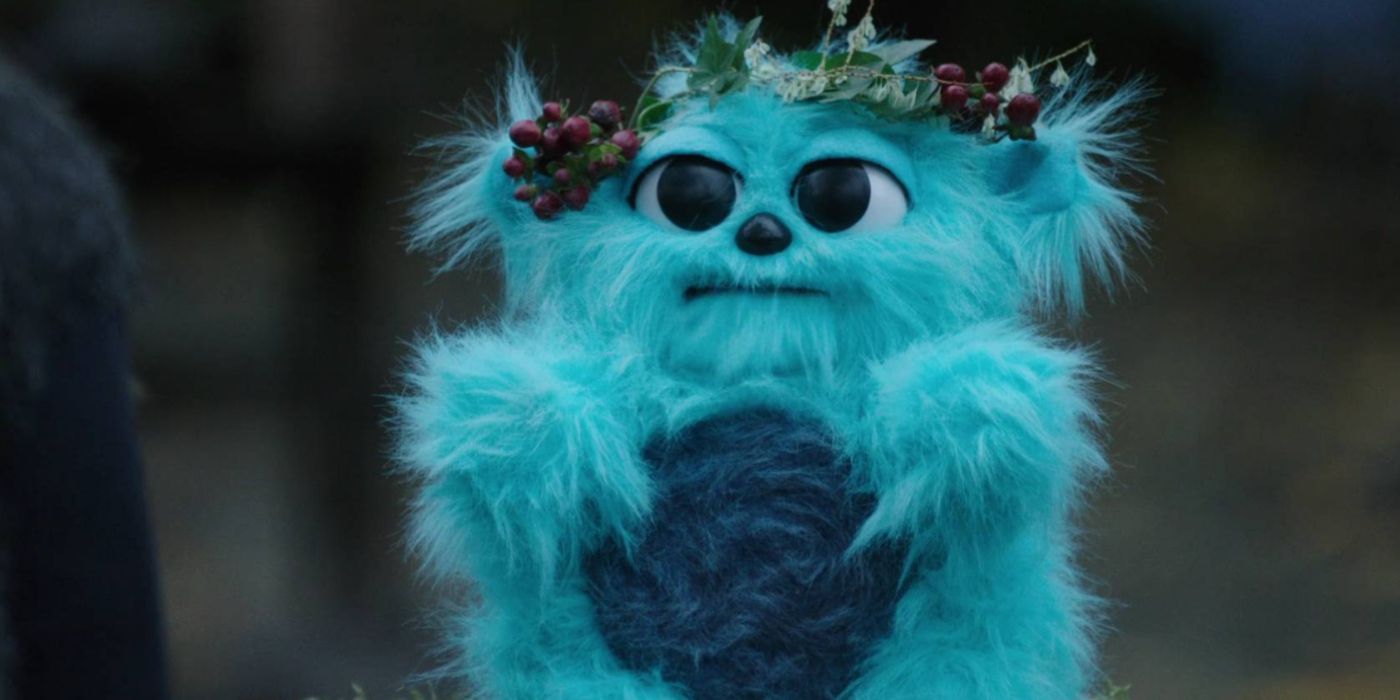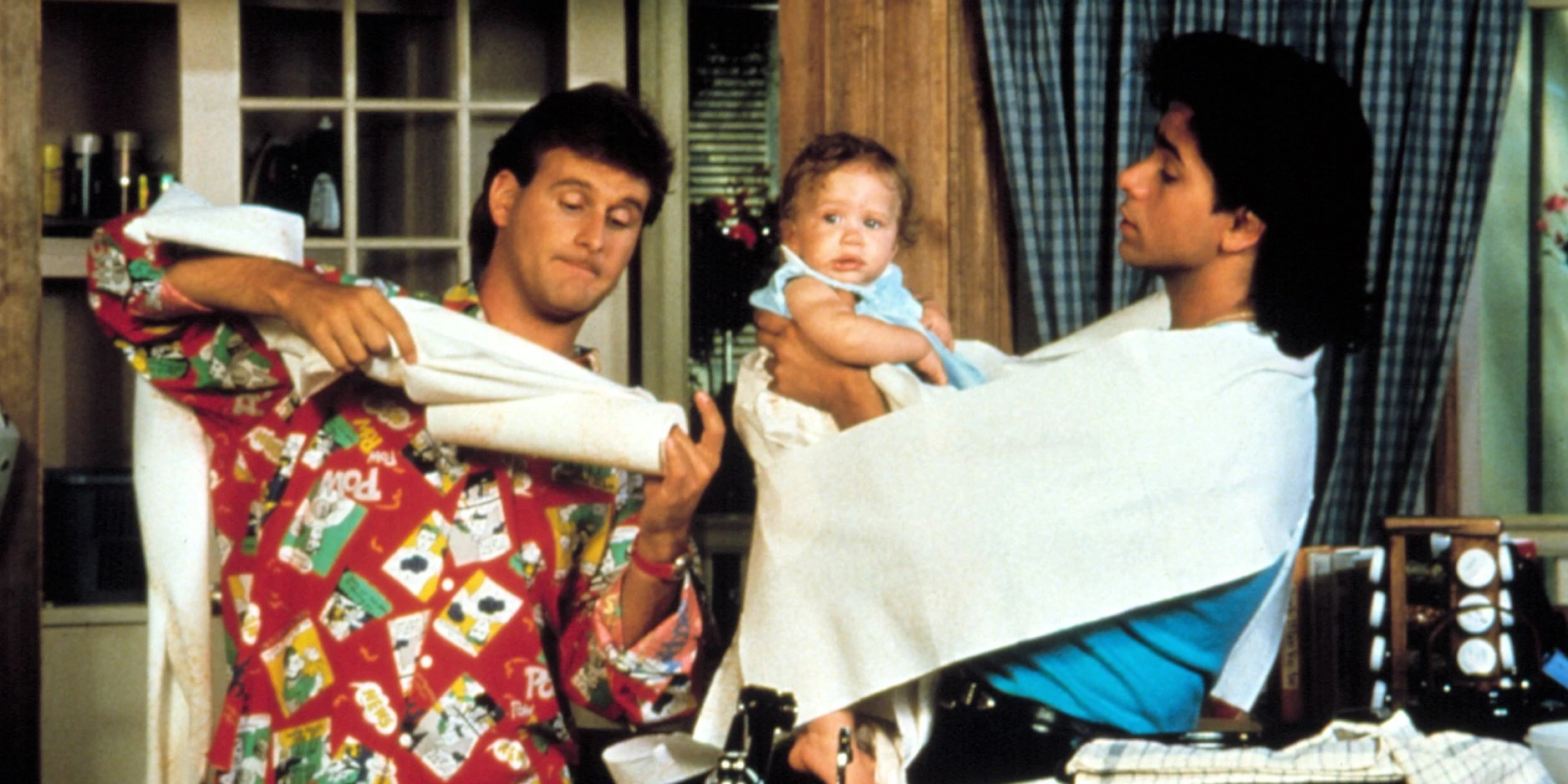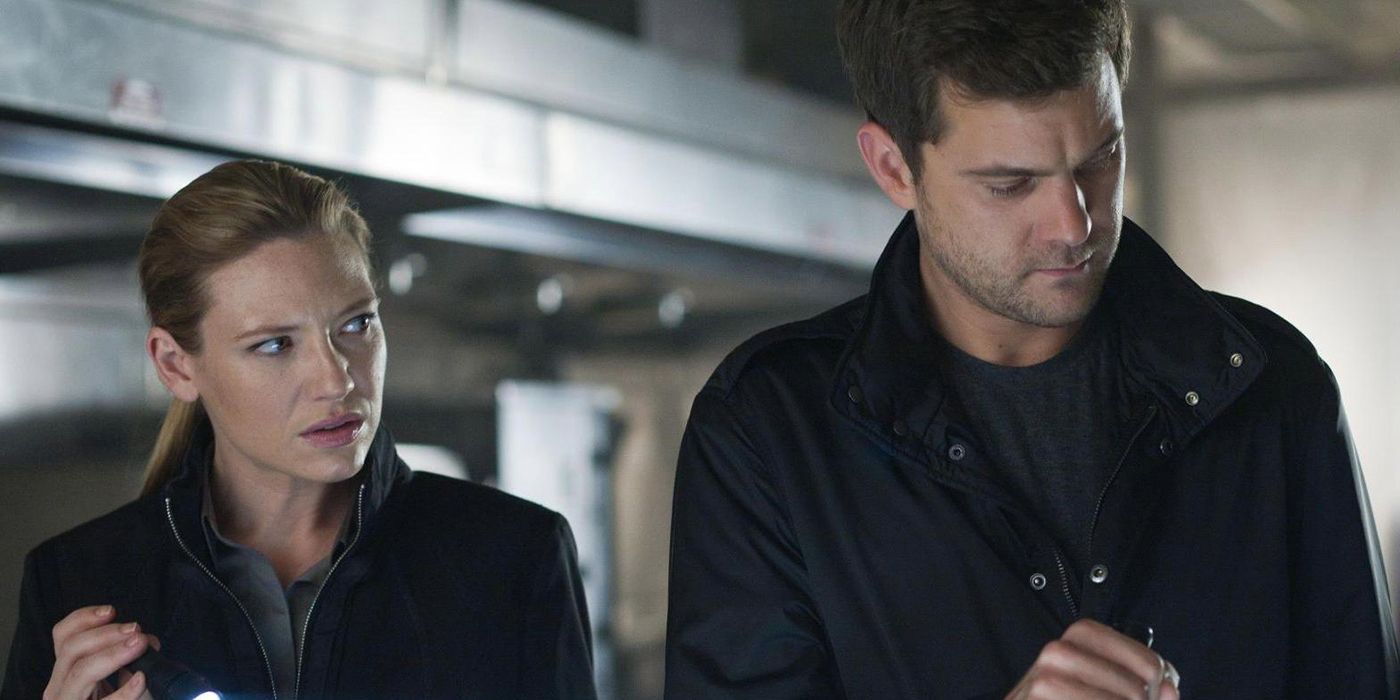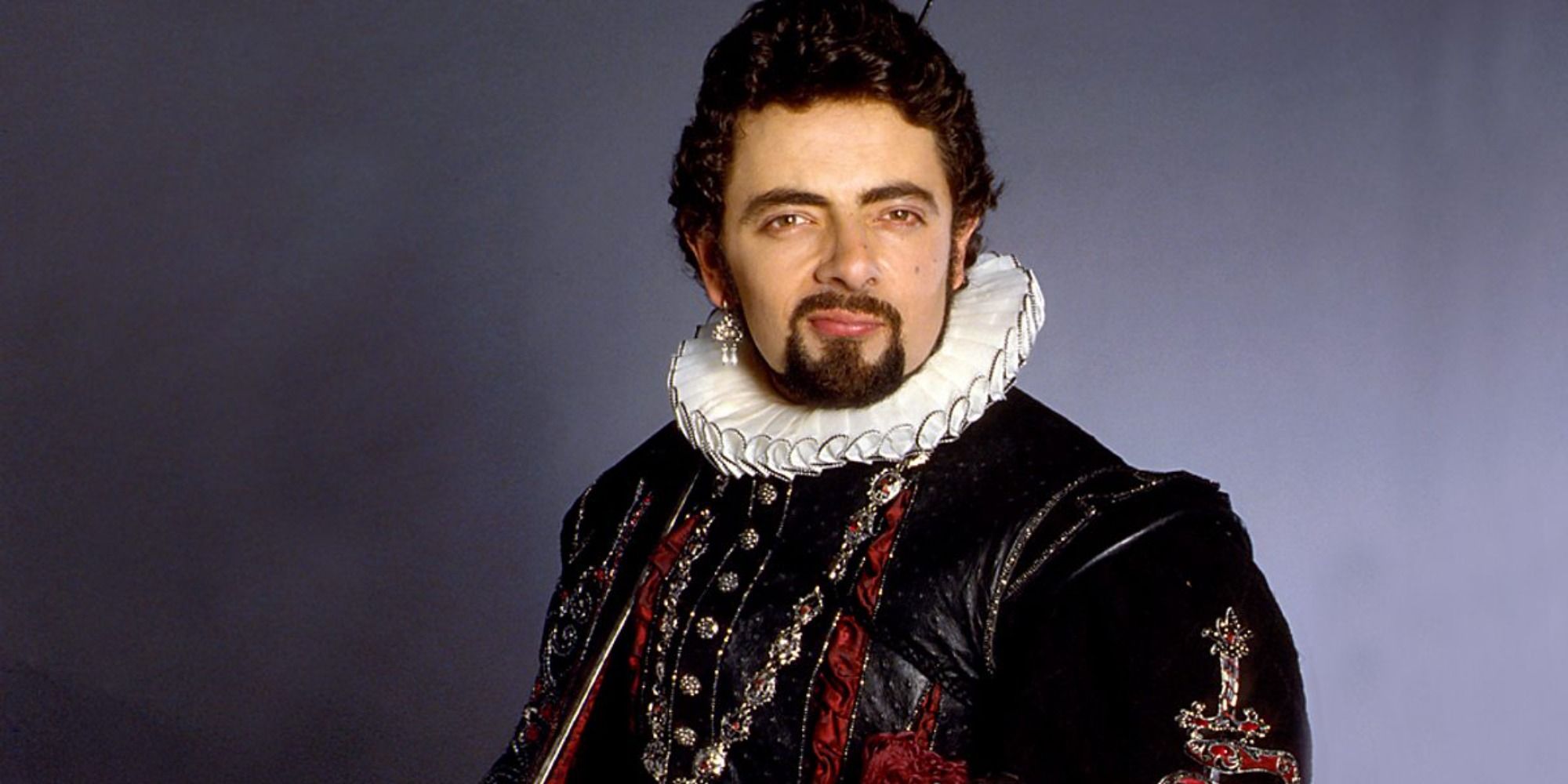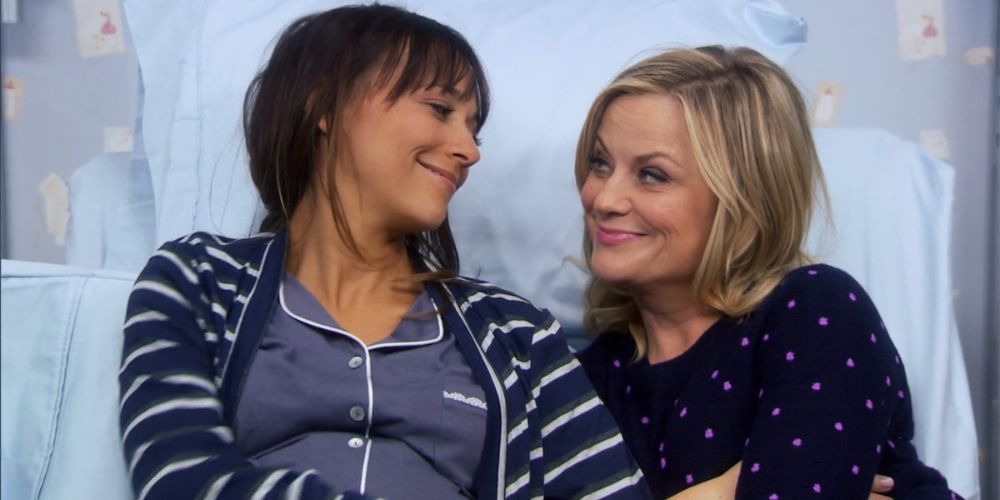Everyone talks about TV shows that dropped the ball, ones that overstayed their welcome and declined in quality as the seasons went on. But what about the opposite? What about shows that only got better as time went on? Everybody knows about the sophomore slump of television, but let's talk about the freshman slump– shows that started out rough and needed a little extra time to get the hang of things. First impressions are important, but hey, television can be hard. Sometimes shows need a second chance to figure out what works and what doesn't.
Below are 12 shows that did exactly that and only got better after abandoning their original storylines.
Fear The Walking Dead
Though the show promoted a glimpse into the origins of The Walking Dead's zombie apocalypse, season one of Fear The Walking Dead instead offered a soapy look into a dysfunctional family. Mixing familial counseling with zombies didn't exactly work out in the show's favor. Fans criticized the show for not living up to the promise of a Walking Dead prequel and critics panned the clichéd writing. The show eventually reinvented itself, ditching the family drama and turning itself into a pseudo-western with zombies. It is a bit of an odd combination, but it works much better than whatever the show had going on before.
Fear came to embrace its roots as well, becoming a prime spot for old characters from the main series to appear, with Walking Dead alumni like Morgan (Lennie James) and Dwight (Austin Amelio) holding spots in the main cast. — Aubrey Carr
Happy Days
The box-office success of American Graffiti opened the door for Happy Days, the Love, American Style spinoff (Days' pilot was aired as an episode), a nostalgic look back at the 1950s through the eyes of Richie Cunningham (Ron Howard), the wholesome, All-American teenager and his family. Reception to the show was tepid, and in fact began to dip in its second season.
In an effort to turn the show's fortunes around, the world of Happy Days opened up, and, in one of the most successful decisions in television history, peripheral dropout/greaser character Arthur "The Fonz" Fonzarelli (Henry Winkler) was made a central character, ditching the windbreaker he wore in the first season and replacing it with the now-iconic leather jacket. To say the reaction was positive is an understatement: the show hit Number 1 in the ratings and ran for 11 seasons. Ironically, the show would also coin the historic phrase "jump the shark" in the Season 5 episode "Hollywood: Part 3", meaning the moment when a TV show goes from good to bad (Happy Days did run for another 6 seasons, so the stigma isn't entirely fair). — Lloyd Farley
Torchwood
Pitched as Doctor Who for adult fans, Torchwood's first two seasons followed a low-budget monster-of-the-week format chronicling a team of special agents hunting down aliens. With the creative freedom of a mature audience and the established lore of the Doctor Who universe, the show had infinite potential. In reality, Torchwood’s inaugural seasons just felt like a muddy mess of graphic sex, gory aliens, and cringey dialogue.
That all changed during "Children of Earth," the show’s third season. Consisting of six episodes that aired over six consecutive nights, the season followed the ethical dilemma surrounding an alien who came to earth with an ultimatum: sacrifice half the earth’s children or let the entire population die. With that ultimatum came a devastating political thriller with some of the highest quality writing of modern British television. — Aubrey Carr
Mom
Mom started out as a sitcom focusing on mom-to-be Violet (Sadie Calvano), her mom Christy (Anna Faris), and Christy's estranged mom Bonnie (Allison Janney). Violet and Christy shared the fact that they became pregnant in their teens, while Christy and Bonnie shared substance abuse problems, and in fact, would reunite at an AA meeting. The series followed their efforts at mending their relationships with one another, with other characters playing minor roles. It's when the show shifted focus from the three women to including the friends that Christy and Bonnie met in AA, a move that brought with it a variety of personalities, that the show really took off. It set Mom apart from its sitcom kin, a show that was funny (yes, despite its premise it is very funny) but balanced with poignant moments and a fearless take on dark, real-life issues including homelessness, relapses, and miscarriages. — Lloyd Farley
Family Matters
A spinoff of Perfect Strangers, a sitcom from the late 80s, Family Matters originally chronicled the daily lives of the Winslow's, a white-collar African-American family living in the suburbs of Chicago, Illinois. While not necessarily better, Family Matters certainly became more iconic after it gave up its original hook of a middle-class family drama.
Introduced as a one-off character, the now infamous, Urkel (Jaleel White) captured the hearts of not just the audience but also of the writers. Not only did the character repeatedly appear after his initial introduction, but he was also upgraded to a main cast member. Quickly though, Family Matter’s stopped being about family and turned into the Urkel show. Not everyone liked the change, but it was definitely what most people remember the show for. — Aubrey Carr
Newhart
The second series to star television legend Bob Newhart, Newhart took some time to hit its stride. Newhart played Dick Loudon, the owner and operator of the Stratford Inn, with the show following the antics of Dick, his wife Joanna (Mary Frann), handyman George (Tom Poston), and rich, world-class skier Leslie (Jennifer Holmes), who takes the job as maid simply to see what "average" is like. The show was a hit, but lacked any real comedy punch in its first season.
That all changed in the second season, with Leslie switched out for her ditzy, spoiled-rich cousin, Stephanie (Julia Duffy), forced to work as the inn's maid. Duffy clicked instantly with the rest of the cast, and was undeniably funnier than Holmes. Things only got better with the arrival of Larry (William Sanderson) and his silent brothers Darryl and Darryl (Tony Papenfuss and John Voldstad). The trio went over so well with the live audience that they were brought on as series regulars in Season 3. With the addition of Peter Scolari and Dick becoming a TV talk show host, the show found its formula for success. — Lloyd Farley
Cougar Town
I'm sure you'll never guess what Cougar Town's original plot was about. Yeah, as the title suggests, it was about a cougar. Courtney Cox of Friends fame appeared as the titular "cougar", a recently divorced woman in search of a younger man to spend her time with. It wasn't a bad show, and frankly, it was refreshing to see an older woman exploring her sexuality, but besides that, the show was nothing special. Soon though, the show's protagonist found a long-term relationship, and the original cougar-themed storyline was replaced with the casual tales of a friend group of 40-somethings. It was funny, relatable, and didn't take itself too seriously (with a running gag of title cards making light of the show's name), a great improvement to Cougar Town's original hook. — Aubrey Carr
Legends of Tomorrow
Legends of Tomorrow had a lot of trouble finding its footing in the beginning. With a cast of characters from The CW’s already established DC Comics universe and a built-in audience, Legends tried to make itself twelve different shows at once: a sci-fi, a drama, a superhero show, a romance. The issue was the show didn’t truly expand on any of those bits. While it tried to compete with the more somber tones of its sister shows, Legends of Tomorrow’s premise of a bunch of time-traveling heroes didn’t exactly mesh with seriousness. As the series progressed, the later seasons ditched any sort of commitment to seriousness. They went all in on Legends' most ridiculous aspects, from saving the life of George Lucas to worshipping a stuffed animal named Beebo. Once the show embraced its oddities, it created its own niche in the CW's Arrowverse and was made the better for it. — Aubrey Carr
Full House
The 1987 debut of Full House introduced the world to single dad Danny Tanner (Bob Saget), his three daughters, Uncle Jesse (John Stamos) and Joey (Dave Coulier). Danny was a sportscaster, Jesse an exterminator, Joey was Joey and the girls were cute, surely a recipe for success. But the show didn't take off that first season, so a couple of changes were made for the second season. Jesse got a haircut and ditched the lame exterminator job, upping his "Fonz"-ness. Danny wasn't a sportscaster any longer (nor was it referenced again) but was co-host of Wake Up San Francisco, which worked in the show's favor for two reasons: Danny was home more with the girls, and it introduced the character of Rebecca, aka "Aunt Becky" (Lori Loughlin). The changes were enough to bring more eyes to the series, which would become the flagship show for ABC's iconic TGIF lineup. — Lloyd Farley
Fringe
Featuring federal agents, sorta-aliens, and a will-they-won't-they romance between protagonists, Fringe basically started out as a wannabe X-Files. And while that was mildly entertaining, frankly, nobody wanted to watch a worse version of a classic TV show. Eventually, Fringe gave up its simple mystery-of-the-week format and with that introduced a complex overarching storyline.
What was once a poorly received and uninteresting show quickly turned into a cult favorite once they brought in complicated ideas like parallel universes and alternate timelines. Fringe’s upgraded storylines eventually resulted in a comprehensive lore rivaling Lost. — Aubrey Carr
Blackadder
The revered Brit-com Blackadder was given a second season but by the skin of its teeth. The first season of the show, called The Black Adder (which would be one of many things to change between Seasons 1 and 2), had none of the caustic wit that most people associate with the show. Blackadder (Rowan Atkinson) was a moron, dumber than Baldrick (Tony Robinson) if you can believe it, production was a mess, and it was expensive to make. Its biggest sin was the fact that it was wildly unfunny and unengaging.
Miraculously it did get that second season, and a new co-writer, Ben Elton, brought with him ideas that would change the fortunes of the show around. The title was changed, and Baldrick was now the idiot, and exaggeratingly so to boot. Most importantly, Blackadder was now the cunning one, full of confidence and a sharp wit, with a never-ending arsenal of insults at the ready. The change in their respective characters suited both Atkinson and Robinson to a tee, not only rescuing the show but elevating it to become one of Britain's best. — Lloyd Farley
Parks and Recreation
The mockumentary sitcom Parks and Recreation is another show that made impactful changes between Seasons 1 and 2, and in doing so also changed its fate for the better. Leslie Knope (Amy Poehler) was a clueless ditz in the first season, drawing unfavorable comparisons to Steve Carell's Michael Scott. The character was changed dramatically, becoming smarter, stronger, unflinchingly optimistic, and more well-liked by her co-workers. The unfunny Mark (Paul Schneider) was removed from the show, replaced by Chris (Rob Lowe) and Ben (Adam Scott). Chris Pratt's Andy was supposed to be phased out after Season 1, but the producers wisely kept him on the show, giving arguably the show's funniest character a spot on the main cast. The main cast itself became a more important part of the show, with the actors given the opportunity to flesh out their characters. — Lloyd Farley

